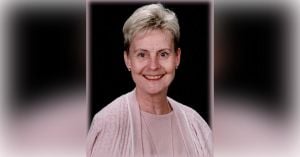President Cyril Ramaphosa delivered his first State of the Nation Address (SONA) under the newly formed Government of National Unity on February 6, 2025, at the parliamentary precinct in Cape Town. This annual address marks his ninth since assuming the presidency and is particularly significant as it aligns with the 70th anniversary of the Freedom Charter, which is often cited as the foundational document of South African democracy.
During the address, President Ramaphosa paid tribute to 14 South African soldiers who tragically lost their lives during a peacekeeping mission in the Democratic Republic of the Congo. These soldiers died fighting against rebel forces, and the President stated, "We bow our heads in tribute to: Staff Sergeant William Eddie Cola, Staff Sergeant Molahlehi Ishmael Molahlehi, Staff Sergeant Shwahlane Theophilus Seepe..." He emphasized their sacrifice was made to uphold the Congolese people's right to peace and security.
The SONA also marked the first delivery under the coalition government formed after no single party achieved a majority during the 2024 elections. Ramaphosa acknowledged the challenges faced by the nation and expressed the need for national unity moving forward. Key priorities outlined included economic growth, job creation, and the reduction of poverty and the high cost of living.
He stated, "Our most urgent task is to grow our economy so…" underscoring the government's commitment to stimulate inclusive economic growth through ambitious infrastructure investments. Over R940 billion is earmarked for infrastructure initiatives over the next three years, which is intended to bolster public works and drive job creation across various sectors.
Recognizing the pressing issues of local governance, Ramaphosa pointed out the need for improvements within municipalities, where many struggle to effectively manage local services. He announced plans for establishing professionally managed utilities for water and electricity to improve both infrastructure stability and the quality of public services for residents.
Ramaphosa outlined initiatives to combat service delivery challenges, including measures aimed at restoring the functionality of local governments. He mentioned, "To create this virtuous circle of investment, growth and jobs, we must lift economic growth to above three percent," emphasizing the link between infrastructure development and job creation.
One of the most immediate focus areas discussed was addressing the water crisis affecting many communities. President Ramaphosa conveyed the seriousness of these issues, assuring citizens through his commitment to remediate these pressing concerns. He said, "We are steadily removing the obstacles to meaningful and faster growth" and announced the Infrastructure Fund's allocation of R23 billion for seven significant water projects.
He pointed out the transformation needed to resolve the water shortages and reaffirmed the commitment to strengthen public utilities to meet community needs effectively. The President's focus extended to revitalizing South Africa's transport and logistical infrastructure to efficiently move cargo, reduce costs, and promote agricultural exports.
Energy supply and the electricity crisis were also central themes of the address, with Ramaphosa highlighting the progress made under the Energy Action Plan to reduce the severity and frequency of load shedding. With optimism, he stated, "We have seen more than 300 days without load shedding since March 2024," which signals improvement, though acknowledging challenges remain.
Addressing unemployment, which has risen sharply amid economic transformation conversations, the President stressed the urgency of creating job opportunities, particularly for the youth. Ramaphosa called for collaboration across sectors, urging businesses to engage with platforms like SA Youth.mobi, where 4.5 million young South Africans are registered for job opportunities. He pledged government support for skills training and education reforms to equip the workforce for future demands.
Furthering his commitment to empower marginalized groups, Ramaphosa reiterated the government's thrust to promote inclusivity by highlighting various programs aimed at transforming the economy for black South Africans, women, and the disabled community.
He stated, "We will set up a transformation fund worth R20 billion… to fund black-owned and small business enterprises," envisioning economic opportunities for those previously disenfranchised.
For health care access, he reported on the preparations for the establishment of the National Health Insurance (NHI) aimed at providing universal healthcare. This initiative seeks to tackle existing imbalances within the current healthcare system, promising enhancements to facilities and patient experience.
On the topic of safety, Ramaphosa condemned increasing levels of violent crime and reaffirmed the government's commitment to improving citizen safety through coordinated law enforcement efforts and community engagement: "We want a nation where everyone is safe." He underscored the necessity of dismantling organized crime syndicates and improving police resources.
The President concluded the SONA with a call to South Africans to unite for their nation's benefit, stating, "Together, we can achieve our shared goals for growth, transformation, and progress," encouraging active participation through the proposed National Dialogue. He articulated his vision for cooperation across political divides, acknowledging the power of collaboration to drive the country forward.
His address encapsulated the significant challenges South Africa faces, as well as the government’s renewed focus on unity and collaborative efforts to address economic, social, and governance issues.



